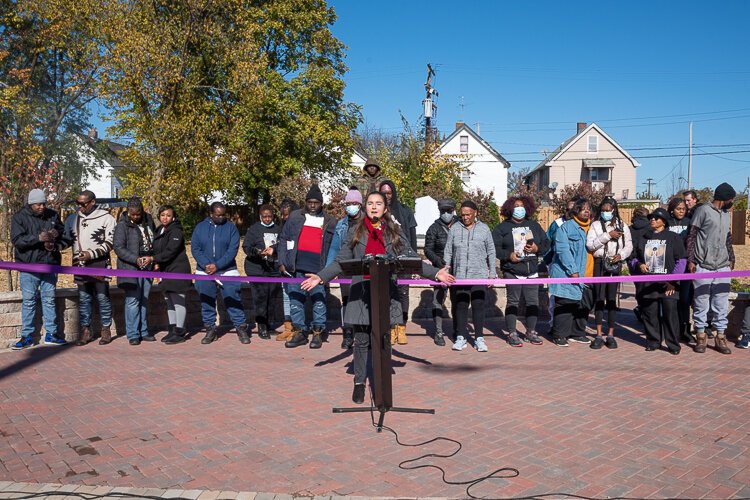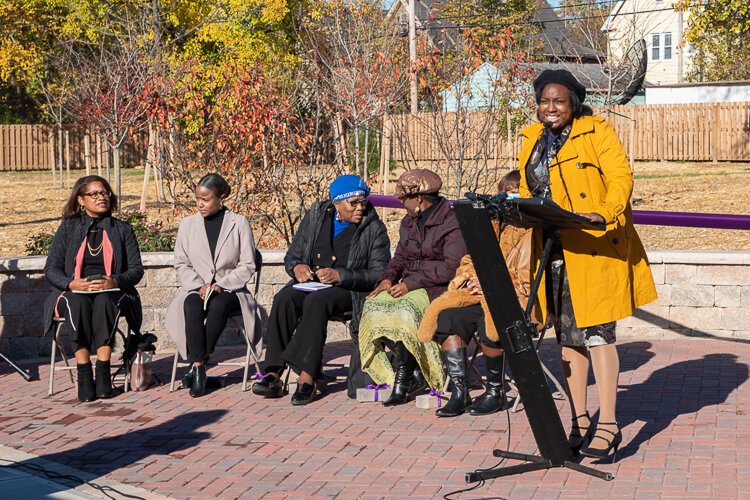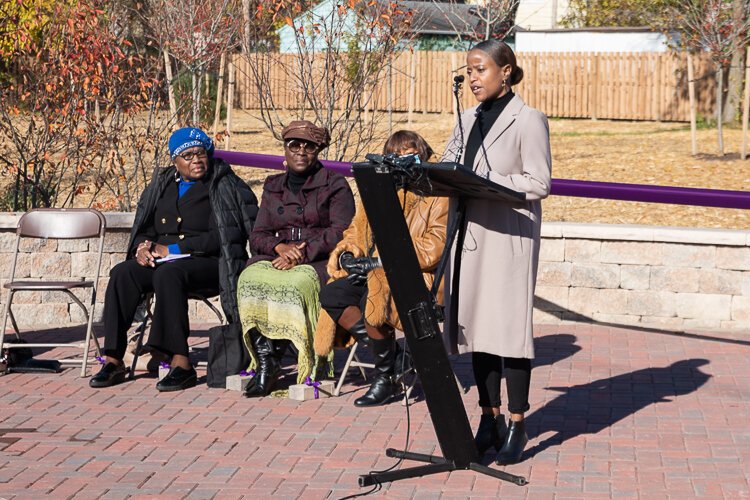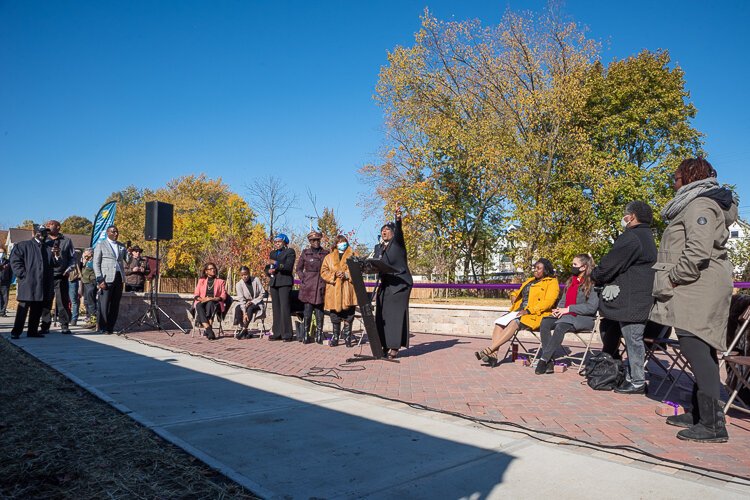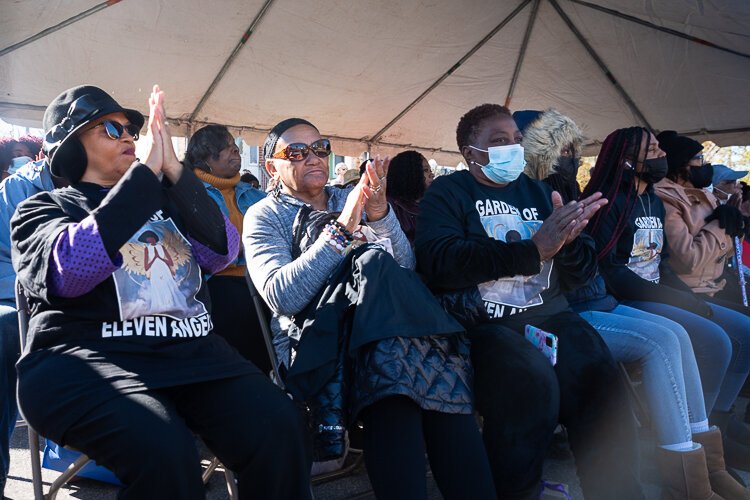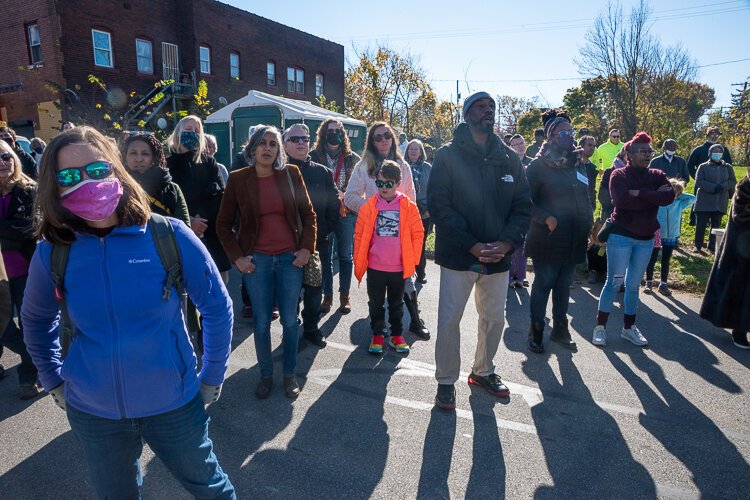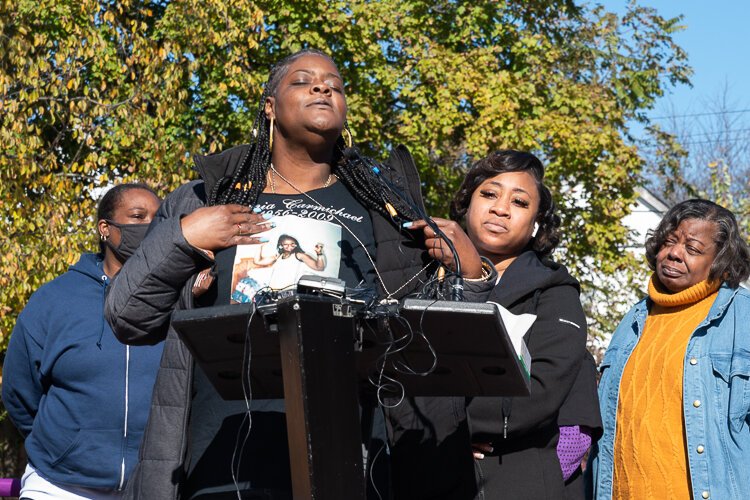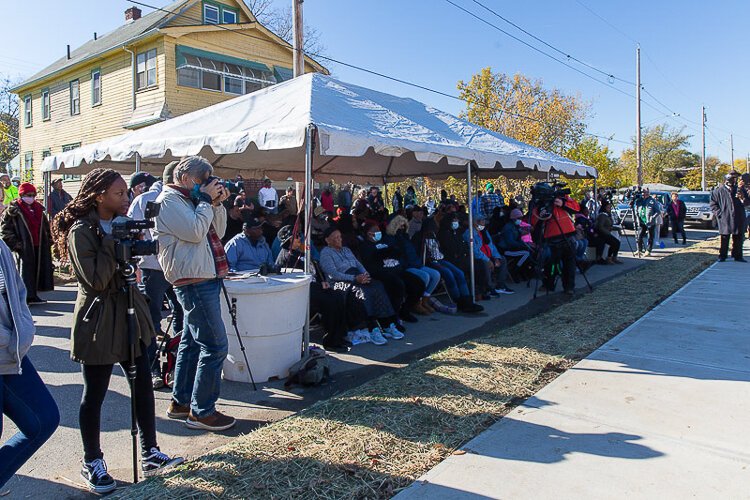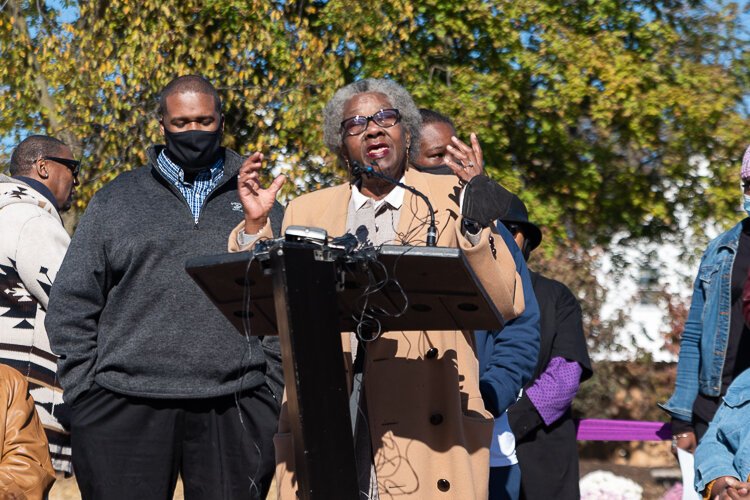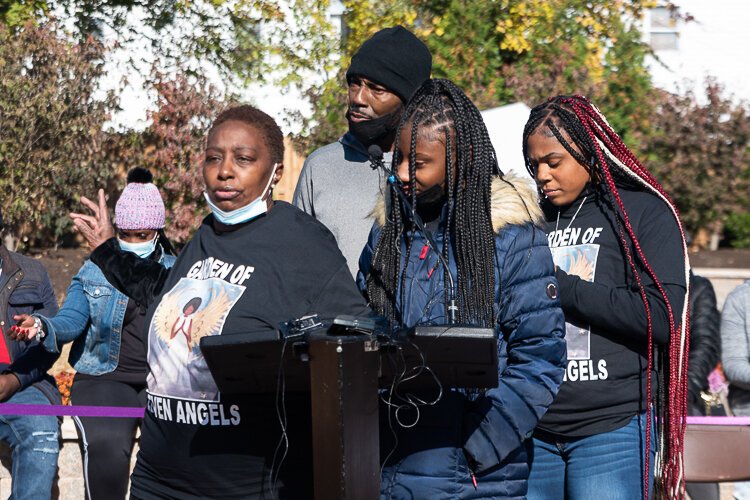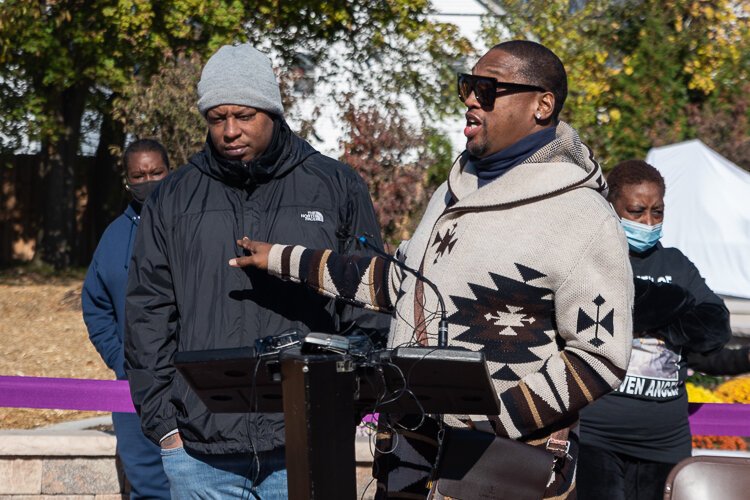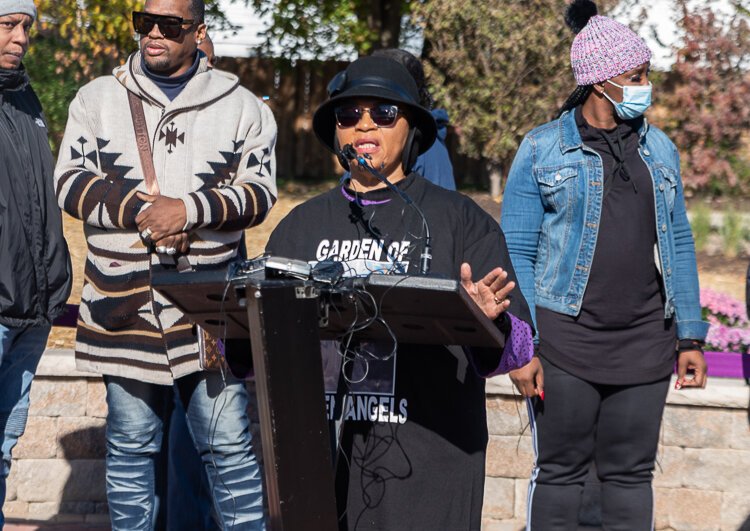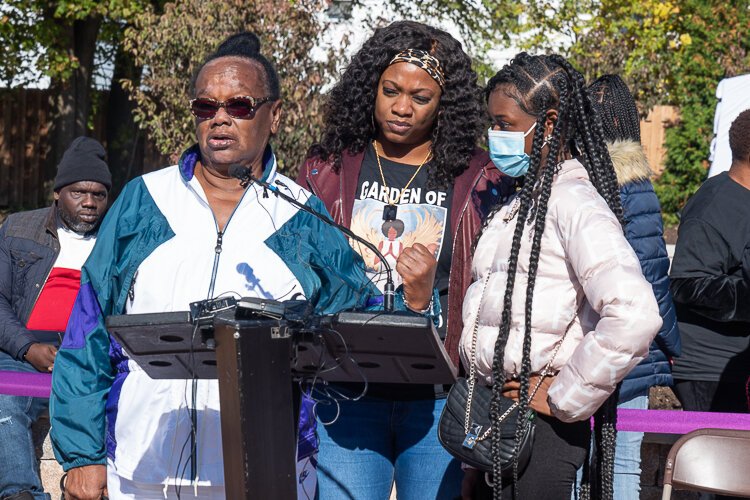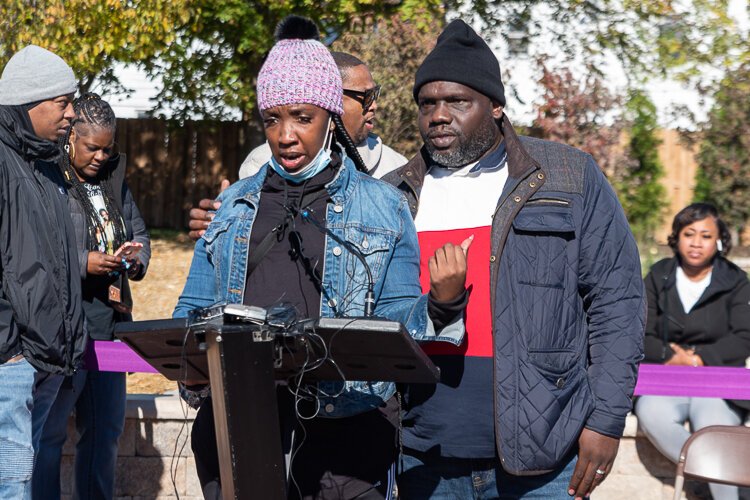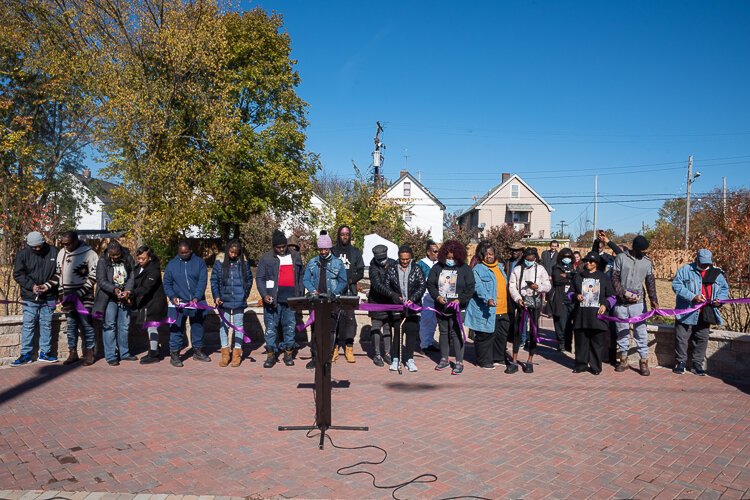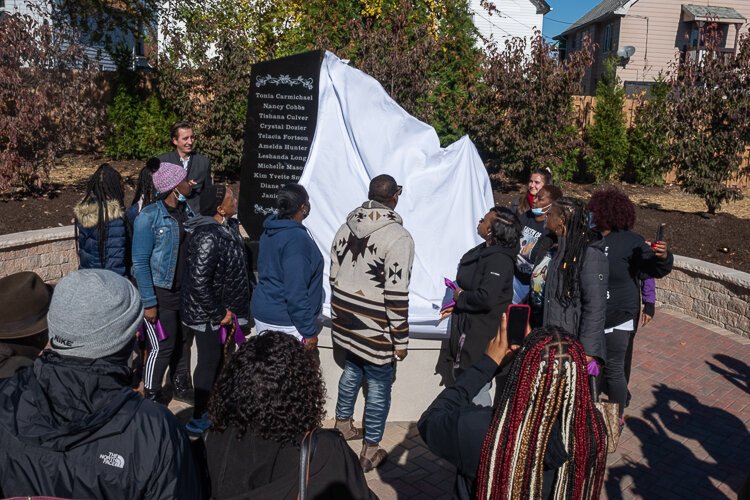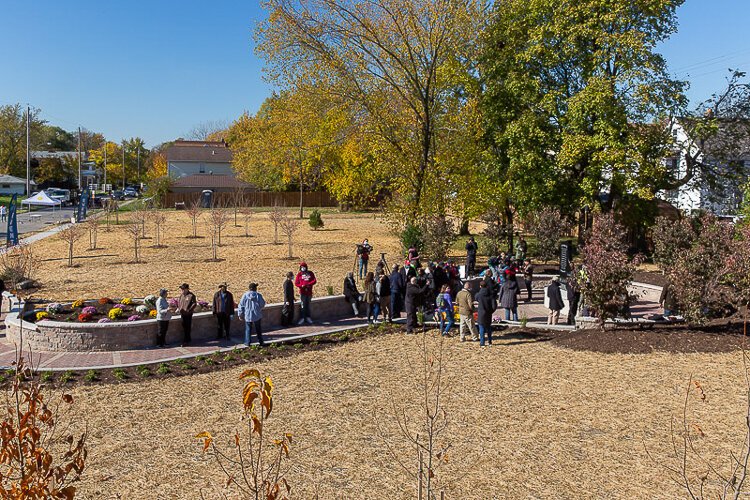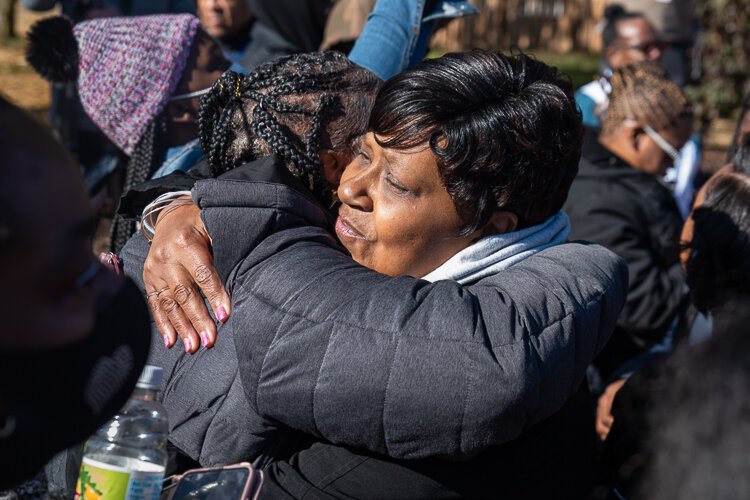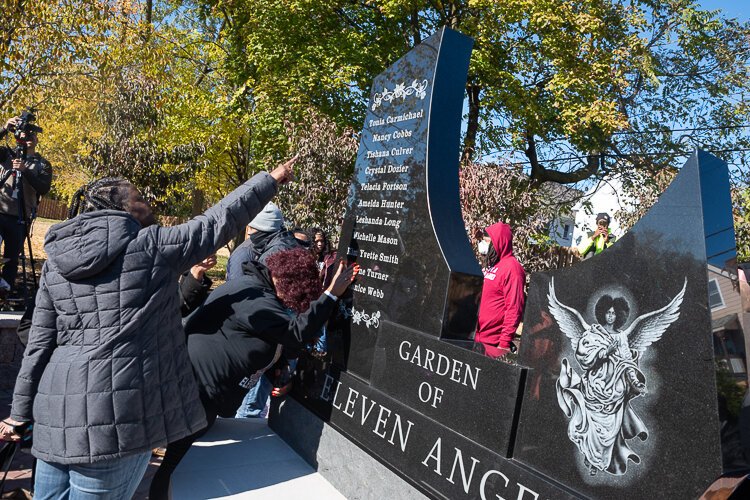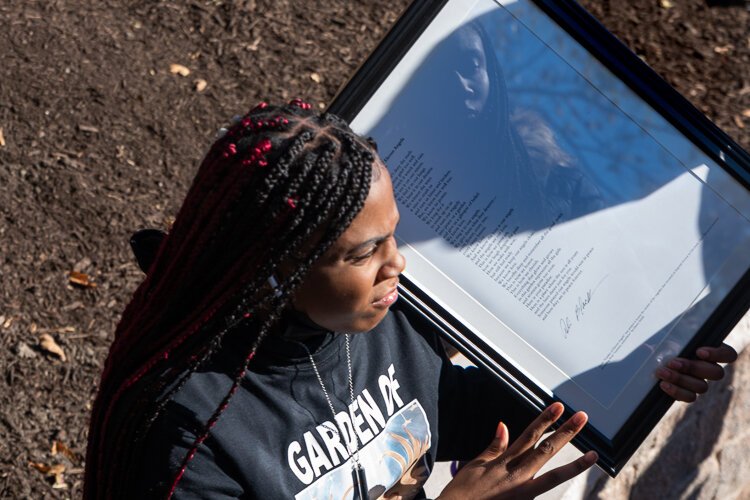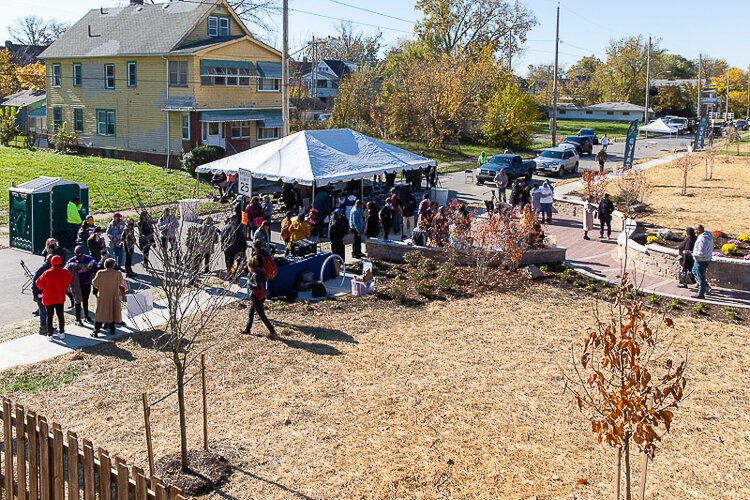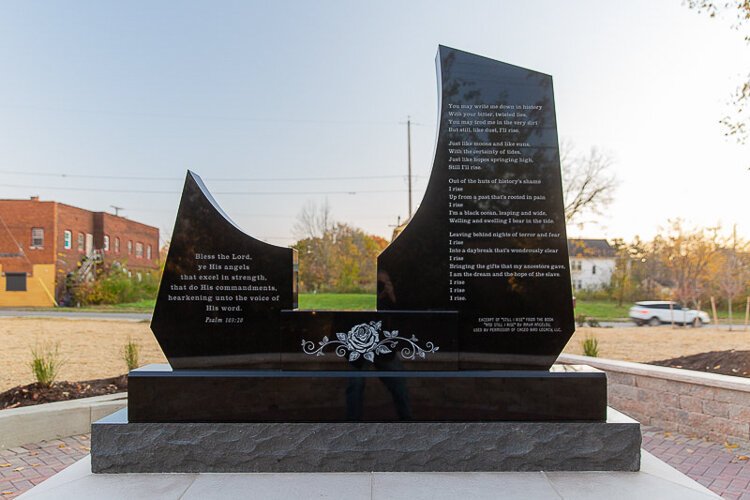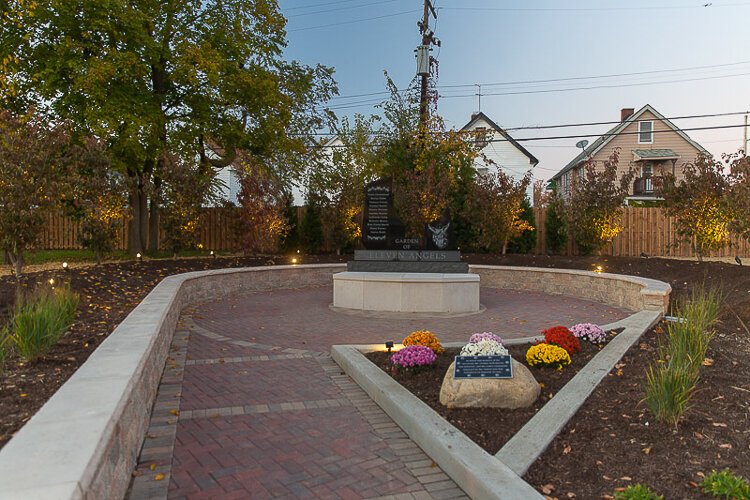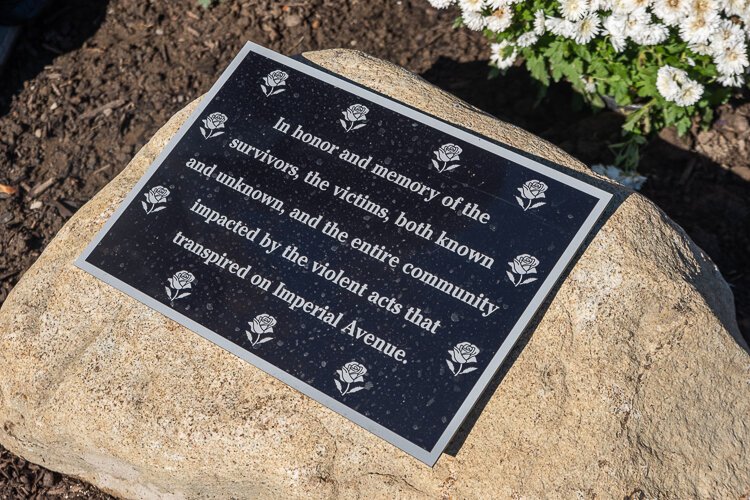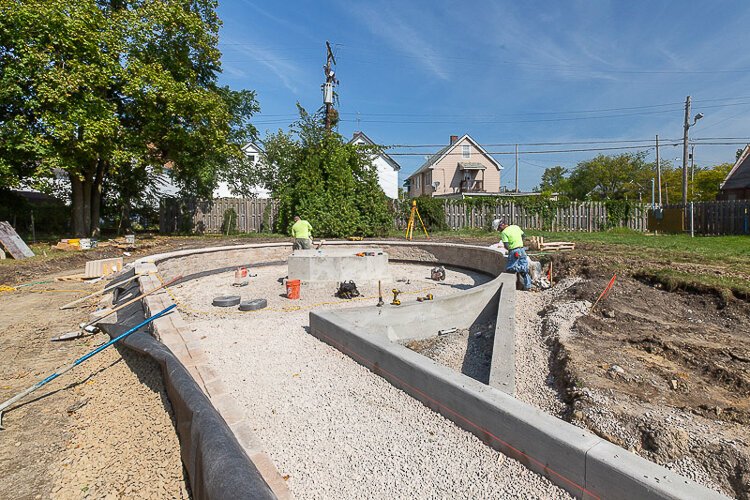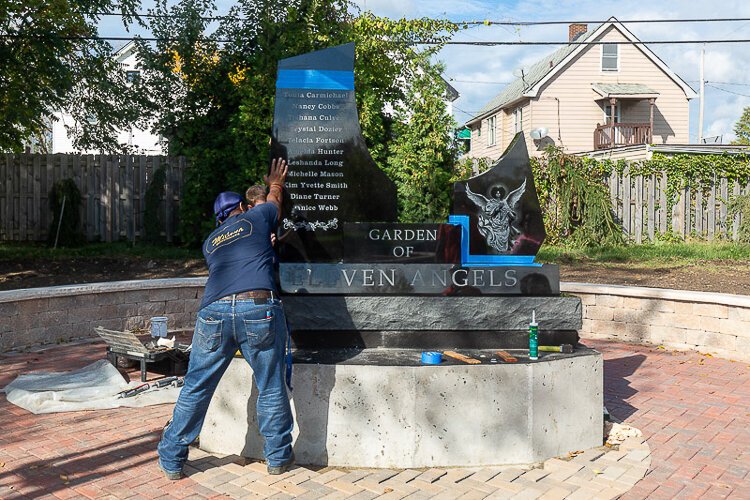Healing the wounds: Garden of Eleven Angels brings hope to a deeply scarred neighborhood
Still I Rise
by Maya Angelou
With your bitter, twisted lies,
You may trod me in the very dirt
But still, like dust, I'll rise.
Does my sassiness upset you?
Why are you beset with gloom?
’Cause I walk like I've got oil wells
Pumping in my living room.
Just like moons and like suns,
With the certainty of tides,
Just like hopes springing high,
Still I'll rise.
Did you want to see me broken?
Bowed head and lowered eyes?
Shoulders falling down like teardrops,
Weakened by my soulful cries?
Does my haughtiness offend you?
Don't you take it awful hard
’Cause I laugh like I've got gold mines
Diggin’ in my own backyard.
You may shoot me with your words,
You may cut me with your eyes,
You may kill me with your hatefulness,
But still, like air, I’ll rise.
Does my sexiness upset you?
Does it come as a surprise
That I dance like I've got diamonds
At the meeting of my thighs?
Out of the huts of history’s shame
I rise
Up from a past that’s rooted in pain
I rise
I'm a black ocean, leaping and wide,
Welling and swelling I bear in the tide.
Leaving behind nights of terror and fear
I rise
Into a daybreak that’s wondrously clear
I rise
Bringing the gifts that my ancestors gave,
I am the dream and the hope of the slave.
I rise
I rise
I rise.
The official opening of the Garden of Eleven Angels on Imperial Avenue on Saturday, Nov. 6 was far more than closure for a neighborhood that suffered the immeasurable pain inflicted by a deranged rapist and serial killer.
It signals a new beginning for the Mount Pleasant community on Cleveland’s east side.
Hundreds of people came together—including family of the 11 murdered victims of Anthony Sowell—to celebrate the opening of the Garden and the years-long effort to acquire and demolish the site of Sowell’s home and other adjacent properties to create a community green space.
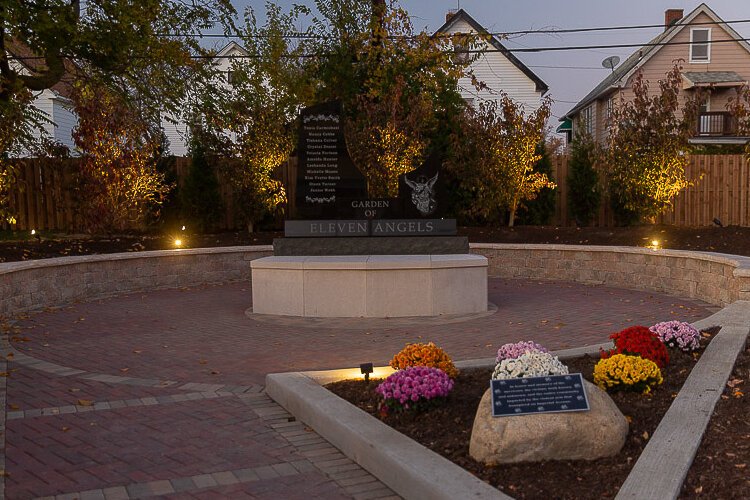 A host of community organizations, contractors, and residents have worked since the groundbreaking in July to create a peaceful, beautiful space that honors the 11 angels and signifies a hopeful future for the Mount Pleasant neighborhood.
A host of community organizations, contractors, and residents have worked since the groundbreaking in July to create a peaceful, beautiful space that honors the 11 angels and signifies a hopeful future for the Mount Pleasant neighborhood.
It has been a dozen years since the events that led to the gruesome discovery of the decayed remains of 11 brutalized and tormented bodies and, one-by-one, brave survivors also came forward to tell their own stories of rape and abuse.
The police who served a neighborhood suffering from the effects of the crack cocaine epidemic could no longer ignore the pleas of terrified victims. Soon, as the incredible story unfolded, the extent of unimaginable brutality and murder became clear. It was a story that did not end with the death row incarceration of the savage perpetrator—Anthony Sowell.
One of Cleveland’s early Black middle-class neighborhoods, Mount Pleasant was first home to farmer immigrants from the Isle of Man—one of the British Isles—as early as 1826. Around the turn of the 20th Century, as more streets were laid out, it is said that one of the contractors who was building houses in the area employed many Black workers. Finding himself unable to pay them in cash, hepaid them with land deeds instead.
By 1907, more than 100 Black families owned homes just blocks east of where the Garden of Eleven Angels now stands. By the 1920s, German, Czech, Russian, and Italian immigrants were settling in Mount Pleasant.
Most of the original homes on Imperial Avenue were built between 1915 and 1925 on small lots measuring 35 feet by 120 feet. 12205 Imperial Ave., a three-story duplex, was built in 1917 on just such a lot. Five years later, a two-story commercial building was built at 3146 E. 123rd St., next door to the Imperial Avenue duplex. The building served the neighborhood as a market and bar on the ground floor, with two apartments on the second floor.
The early ownership of the two structures inexplicably connected by history is unclear. But it is known that the Imperial Avenue property was purchased by John A. Sowell, a skillful carpenter, and his wife Cleathor in November 1951. Four years later, Raymond Cash, a butcher, purchased the East 123rd Street building where he had opened his sausage shop in 1952.
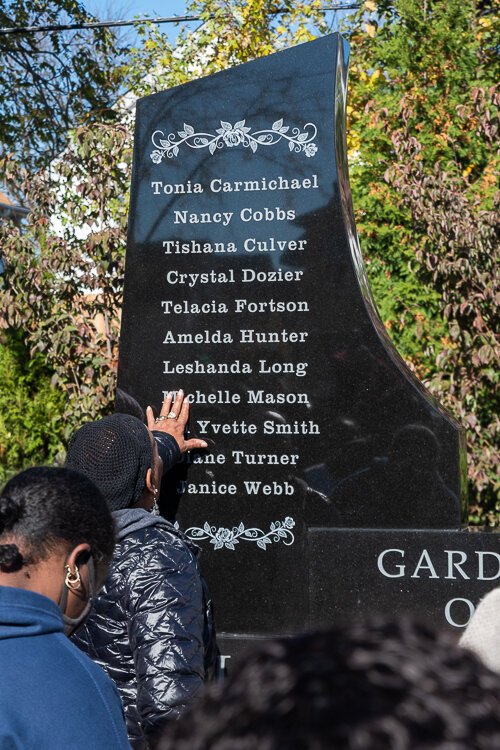 In March 1987 ownership of the Imperial Avenue house was transferred to Thomas E. Sowell, a house painter, and his wife Segrina. Thomas was the son of John and Cleathor Sowell and the father of Anthony Sowell, who was born in East Cleveland in 1959.
In March 1987 ownership of the Imperial Avenue house was transferred to Thomas E. Sowell, a house painter, and his wife Segrina. Thomas was the son of John and Cleathor Sowell and the father of Anthony Sowell, who was born in East Cleveland in 1959.
Anthony Sowell grew up at 1878 Page Ave. in East Cleveland with six siblings and seven additional children born to his sister. Thomas abandoned the family when Anthony was just a toddler. Anthony’s mother and grandmother were physically and emotionally abusive, and he learned at an early age that violence was the way to deal with problems.
Anthony dropped out of high school at the age of 17 and at 18 he joined the Marines. By all accounts, he thrived in the structure of military service until he was sent to Okinawa, Japan in January 1984. It is believed that he began to give in to the sadistic feelings that had been spawned by his treatment at the hands of his mother and grandmother.
Following his discharge from the Marine Corps in January 1985, Anthony Sowell returned to East Cleveland, and in 1989 he took out his hostility on his first known victim—a woman he met on the street and took to his house where he tied, gagged, and raped her.
Sowell was charged with kidnapping, rape, and attempted rape. He pled guilty to the charge of attempted rape and served 15 years in prison for his crime. When he was released in June 2005, Sowell and his new girlfriend—a crack cocaine addict—moved into the family house on Imperial Avenue.
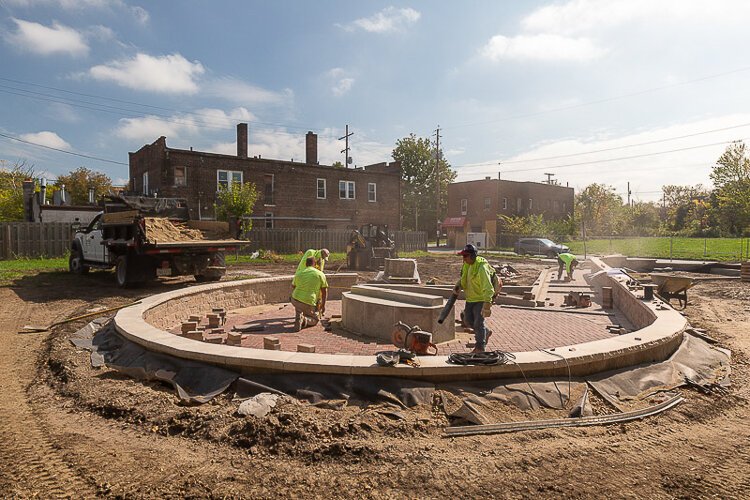 Sowell worked at a manufacturing company on the east side of Cleveland and did odd jobs for his Imperial Avenue neighbors. Sowell reportedly doted on his girlfriend, working two jobs to show his love for her by supporting her drug habit. Friends are said to have described her as the love of Sowell’s life.
Sowell worked at a manufacturing company on the east side of Cleveland and did odd jobs for his Imperial Avenue neighbors. Sowell reportedly doted on his girlfriend, working two jobs to show his love for her by supporting her drug habit. Friends are said to have described her as the love of Sowell’s life.
Sowell is believed to have joined her in drug use, becoming addicted to crack and alcohol. By 2007, with Sowell out of work, their relationship soured, and she moved out in April of that year.
As Sowell hit bottom, so did the Imperial Avenue neighborhood. Over the next two years, he used the lure of crack and alcohol to entice at least 15 neighborhood women to his house—killing at least 11 of them.
He hid the remains of his victims inside the house or buried them in the backyard. Sowell is said to have admitted to the rape and murder of a 12th victim, disposing of the remains in a dumpster. But the body was never recovered for identification.
Sowell blamed the stench of the decaying bodies on the sausage shop next door. The city health department ordered expensive and unnecessary replacements be made to the factory’s sewer traps and ventilation systems. No matter how much disinfectant was used in the shop, the odor persisted.
Today the Imperial Avenue neighborhood is in transition, with a significant numberof abandoned homes and vacant lots. The Western Reserve Land Conservancy (WRLC) has purchased anumber of vacant lots in Mount Pleasant—including eight lots have been consolidated into a single parcel that is just over three-quarters of an acre.
Under the leadership of WRLC, Ozanne Construction, the Garden of Eleven Angels was designed by Whitley and Whitley Architects and LAND studio, and built by AKA Construction Management.
Sub-contractors included Platform Contracting for excavating and concrete; Down to Earth Landscaping; Goldman Electric; Noce Enterprises; O’Brien Cut Stone; Milano Monuments; and Johnson Fence Company.
Ongoing maintenance will be provided by Burten, Bell, Carr Development.
On one side of the entrance is a bicycle rack, inviting cyclists to take a break from their rides and wander through the garden. On the other side is a free library, encouraging visitors to relax and read in the shade of a carefully selected variety of trees.
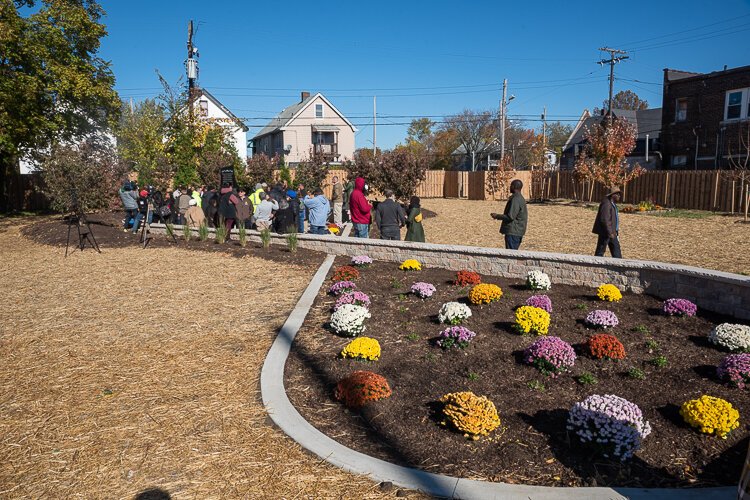 Central to the garden is the shape of infinity—symbolic of the eternal peace in which the victims rest, and the hope that their loved ones will find peace in the tranquil setting.
Central to the garden is the shape of infinity—symbolic of the eternal peace in which the victims rest, and the hope that their loved ones will find peace in the tranquil setting.
Milano Monuments created a black granite memorial to the victims, featuring the hand-etched likeness of a Blackangel and the names of each of the Imperial Avenue angels on the front—Tonia Carmichael, Nancy Cobbs, Tishana Culver, Crystal Dozier, Telacia Fortson, Amelda Hunter, Leshanda Long, Michelle Mason, Kim Yvette Smith, Diane Turner, and Janice Webb.
On the rear of the monument is an excerpt from Maya Angelou’s inspirational poem “Still I Rise,” celebrating self-love and self-acceptance—a gentle, yet moving reminder to all who visit the garden.
Just before the monument stands a rock honoring the others who suffered at the hands of Sowell’s violence, including those who were abused but able to walk away, the loved ones of all the victims, and those victimswho arenot yet identified.
Even before the garden began to take shape its impact was felt in the neighborhood. A loved-one of one of the Angels provided refreshments for the groundbreaking ceremony in July 2021. In a community that experienced so much pain and sorrow, workers were warmly welcomed to the garden site.
In the past year, residents stopped to pray, to talk, and to watch the progress. Workers spotted, and then repaired, potholes in a resident’s driveway.
Perhaps the most significant note is the successful completion of the project, despite all of the rain, within one week of the date 12 years earlier when so much horror came to light. Dedication of the garden signifies a promise made and a promise kept.
The garden, a remarkable and peaceful memorial to lives lost and lives changed, is designed as a place of healing and solace, of togetherness and community, of reflection and contemplation.

